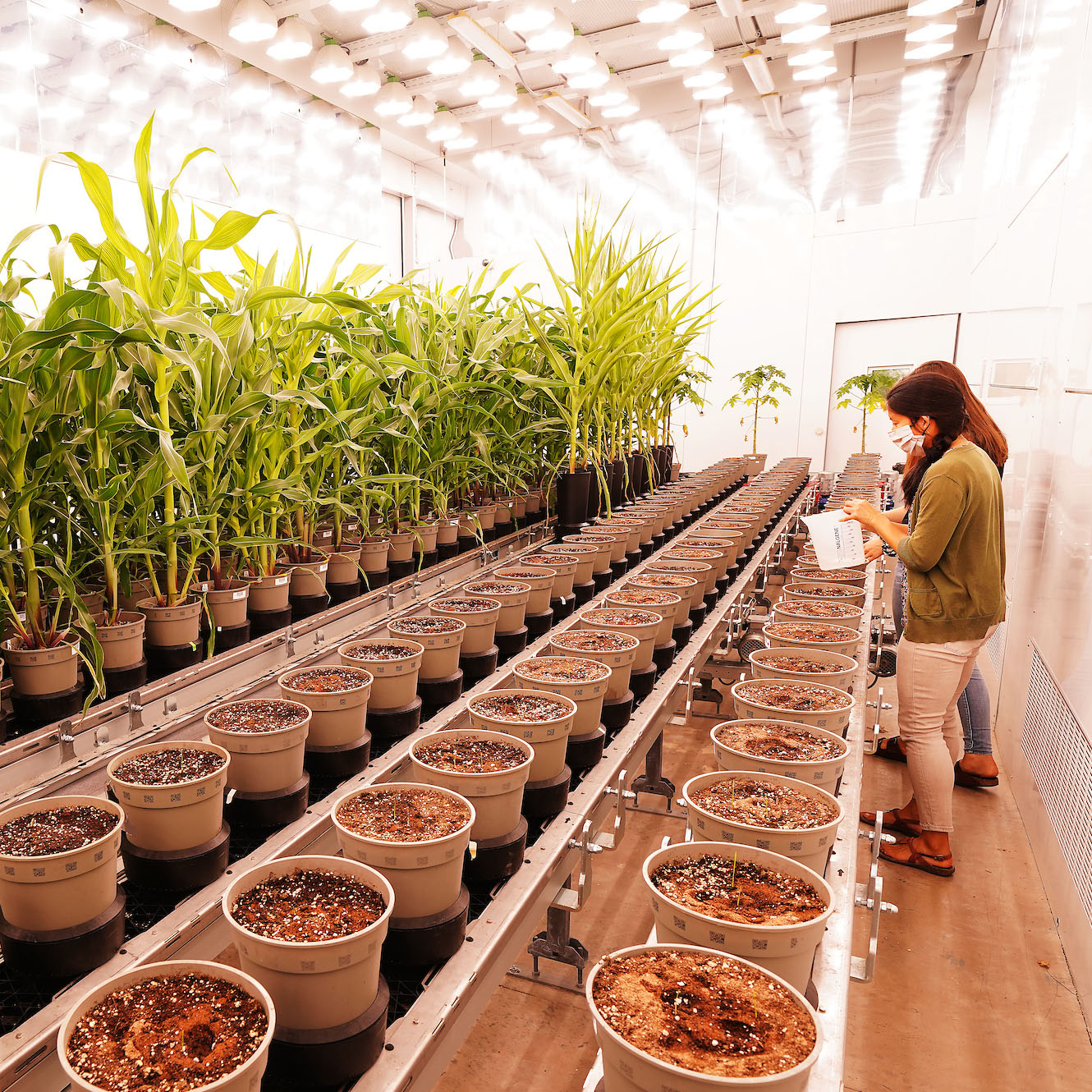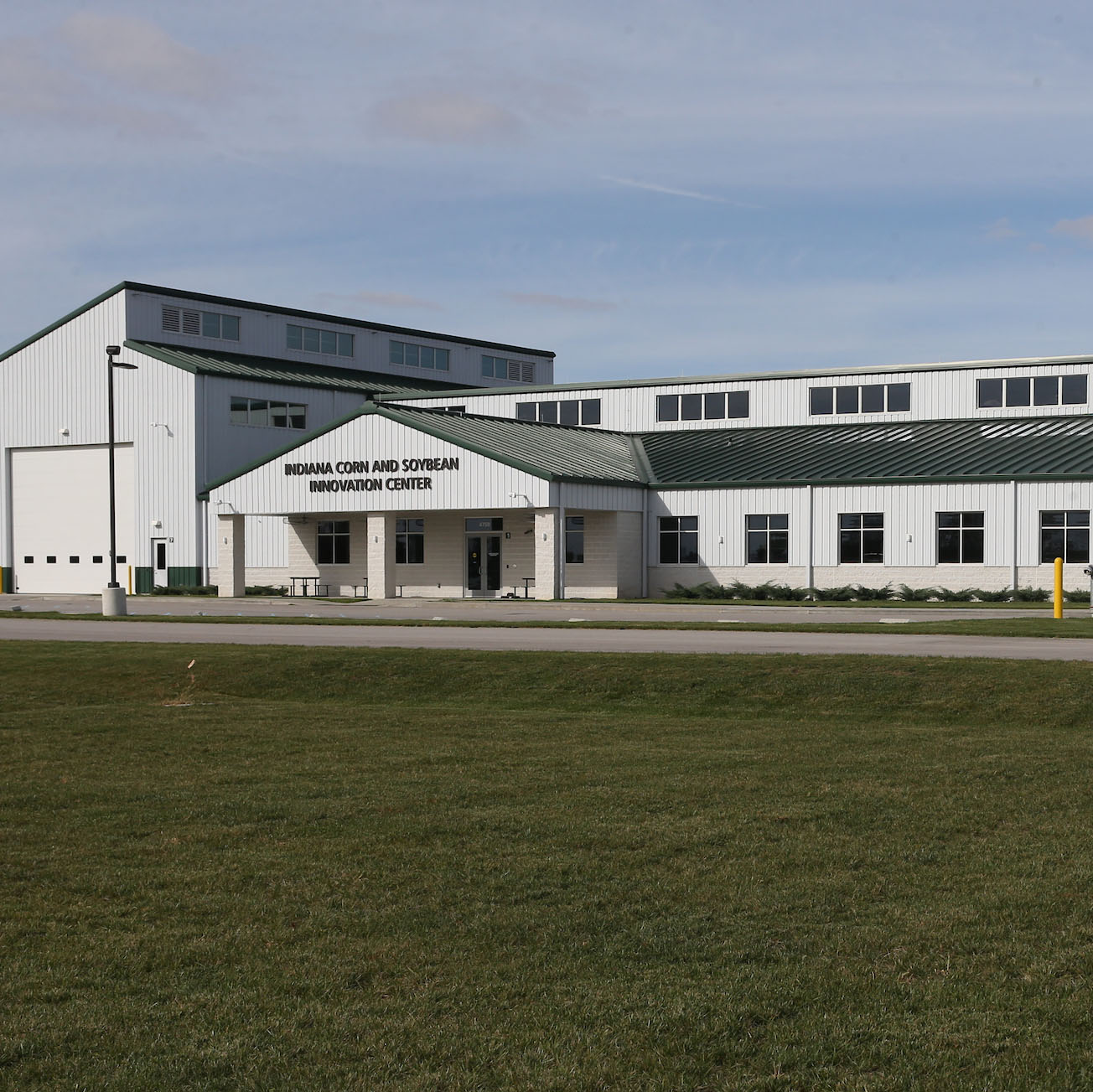Research at the intersection of disciplines
We need to produce plants that are more nutritious and more resilient to environmental stresses in order to feed the projected 9 billion people by 2050. To sustainably feed a growing population with more nutritious foods, we must collaborate across scientific disciplines to develop solutions for global problems – solutions that transform the way producers breed and grow plants, and solutions that keep supply chains operating even during challenging times.
Purdue’s Institute for Plant Sciences is at the forefront of solving these local and global challenges. We address important fundamental questions in plant biology, converge our research across disciplines and push ideas from the lab into the marketplace.
Over 100 scientists across five colleges have collaborated to establish flagship programs in plant phenomics, digital agriculture and big data, generating over $200 million in gifts and external grants since 2014, and strengthening basic and applied plant science programs at Purdue.
We have thirty-nine faculty in the Center for Plant Biology (CPB) representing eight academic departments across three colleges who share an interest in basic plant biology research and are committed to enhancing graduate training.
LEARN MORE ABOUT THE CENTER FOR PLANT BIOLOGY
Technology to understand plants in a changing environment
Cutting-edge technology allows us to gather and analyze huge amounts of real-time, high-quality phenotypic data. Faster data collection and analysis can translate into better information to support crop improvement.
There have been rapid advances in sequencing the genetic material of crops, but the technology to identify changes in phenotypes lags behind. Major investments have been made to advance automation and sensing capabilities to allow Purdue researchers to more quickly close the gap between genotype and phenotype.
Identifying phenotypes as plants respond to changes in environment and/or management protocols will not only enhance our fundamental understanding but also help plant breeders translate those findings into more productive and nutritious crop varieties.
Ag Alumni Seed Phenotyping Facility

This 7,000-square-foot high-throughput phenotyping facility complements Purdue's field-based phenotyping capabilities with precise environmental control and non-destructive data collection of 256 individual plants up to four meters tall from root to shoot.
VISIT THE WEBSITEIndiana Corn and Soybean Innovation Center

This 25,500-square-foot facility is one of the nation's first and largest field phenotyping facilities. The research facility features state-of-the-art technologies for plant and seed analysis, advanced sensing and digital agriculture.
Turning data into decisions
Digital agriculture involves collecting, storing, processing and analyzing data to make better decisions along the agricultural value chain. Purdue is producing valuable insights, developing intelligent technology and partnering with industry to build capacity in the way we store, process and analyze big data, reducing the time for discovery.
- More than 20 Purdue Extension educators are flying drones throughout Indiana to gather data to empower farmers to make data-driven and profitable decisions.
- An Internet of Things (IoT) test bed is established across the 1,400-acre Agronomy Center for Research and Education (ACRE).
- Wabash Heartland Innovation Network is partnering with Purdue to enhance a 10-county region as the epicenter for digital agriculture.
- Solar powered mobile wi-fi hotspots and a new weather tower provide high-speed connectivity across 1,400-acre research farm.
- The College of Agriculture is partnering with Hewlett Packard Enterprises (HPE) to develop new AgTech innovations.
